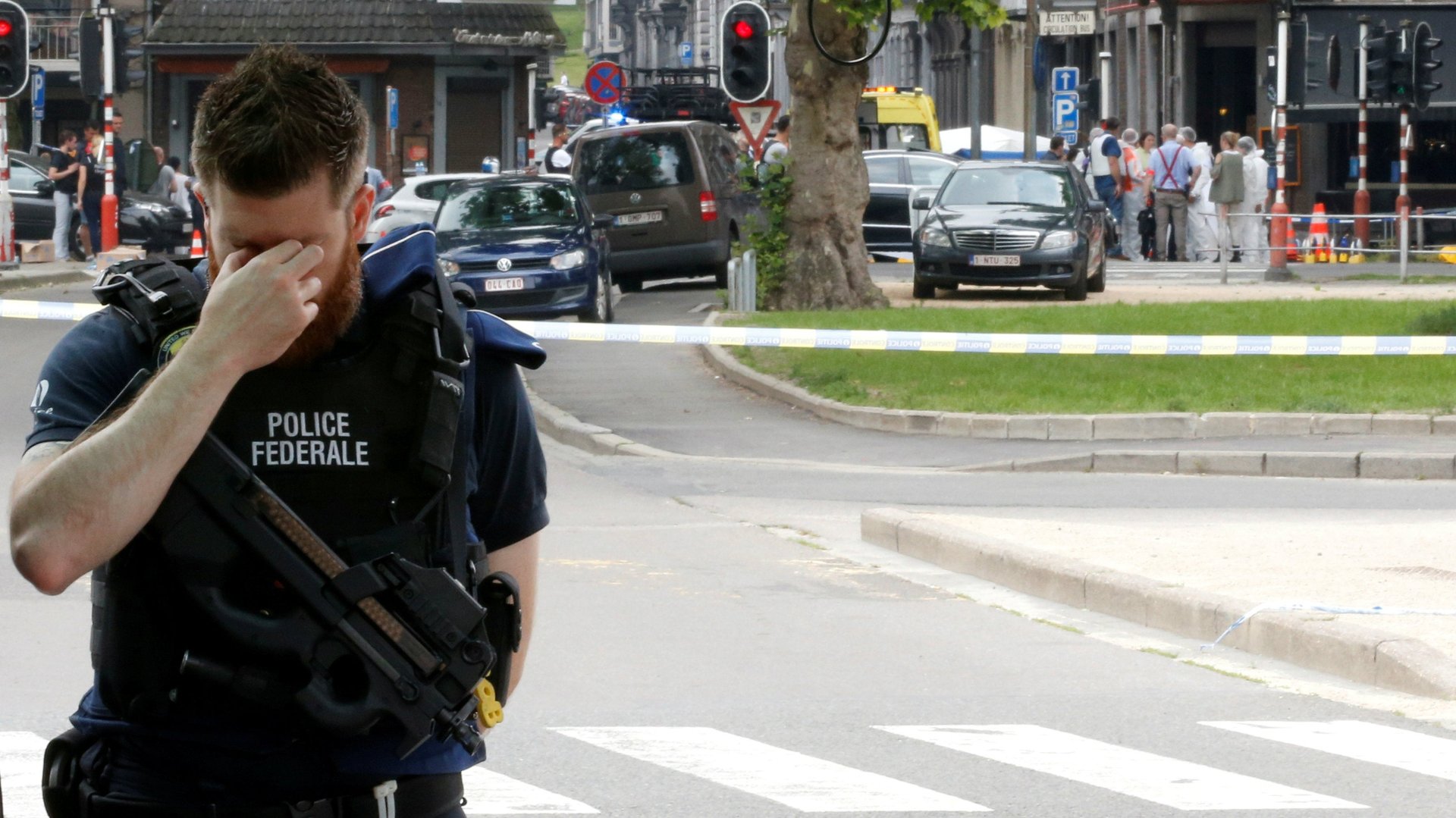Why Europeans should be quick to investigate petty criminals for Islamic terrorism
On Tuesday, Benjamin Herman killed two police officers and a passerby in Liège in Belgium before being killed in a shootout. He also allegedly killed someone the day before. Belgian prosecutor Philippe Dulieu told the press that they are treating the killings as a “terrorist incident” and subsequently opened a terrorism inquiry.


On Tuesday, Benjamin Herman killed two police officers and a passerby in Liège in Belgium before being killed in a shootout. He also allegedly killed someone the day before. Belgian prosecutor Philippe Dulieu told the press that they are treating the killings as a “terrorist incident” and subsequently opened a terrorism inquiry.
It may seem like the authorities are quick to jump to conclusions. After all, the perpetrator was a petty criminal who had been let out on day-release from a local prison. It may seem trigger-happy of the Belgians, a hangover from the two suicide bombings in 2016 in which ISIL, also known as ISIS and the Islamic State, claimed responsibility.
But the state prosecutor’s move is in line with what studies and experts have warned about—petty crime is integral to the radicalization, recruitment, and financing of Islamic terrorist cells in Europe.
In 2015, Louise Shelley, a university professor at George Mason University and director of its Terrorism, Transnational Crime and Corruption Center, wrote in the New York Times (paywall) about how “the financial profile of the ISIS inspired terrorists in Europe is very different. Many of them were small-scale criminals before they were radicalized and some continue to commit crimes subsequently. Financing from petty criminal activity allows them to support themselves, buy weapons in Europe’s illegal markets and rent cars and safe houses.”
Later that year, Peter Neumann, a radicalization expert at King’s College London said in the Washington Post (paywall) that European jails have become breeding grounds of Islamist radicals for years, especially in Belgium and France. “Many of them live lives as hoodlums, had an epiphany, and turned religious, but these connections to criminality are not meant to disappear,” he added.
Studies over the last decade have also shown links between petty crime and, in particular, Islamic terrorism.
In 2007, a research report funded by the Danish Ministry of Justice (pdf) delved into how for Muslim boys facing an identity crisis by living in the West can manifest itself “into anger, petty crime, and becoming easily susceptible to
Another study published in 2016 in the CTC Sentinel also highlights the link between petty crime and radicalization. “Many of today’s European jihadis are no longer middle-class intellectuals but petty criminals and former gang members who have spent time in prison and carry convictions for violent crime,” say the authors.
Experts have warned that in order to understand and therefore tackle this type of terrorism, authorities need to probe into these links. “To better understand the threat faced by the new generation of jihadists in the West, security forces and intelligence services must also look at the micro-level of how lower level trafficking, drug dealing and petty criminal activity, combined with prison radicalization and ties to the black market and illicit underworld, combine to present a new spin on a longstanding threat,” said the authors of a study in the Journal of Strategic Security (pdf).